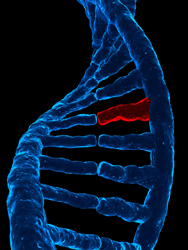Integrating alternative transcript information
Production of mature mRNA from genomic DNA is a highly controlled process, regulated at different stages (transcription initiation, splicing and polyadenylation). This provides an inherent variation of mRNA isoforms from the same gene which differ in the initiation site, exons and untranslated region. These mRNA isoforms are tissue or developmental stage-specific and disruption in their expression often leads to diseases such as cancer and multiple sclerosis. Such alternative transcripts (ATs) have important consequences for the design of new drugs and targeted therapies. To integrate existing information on ATs in one database was the subject of the EU-funded initiative titled ‘The alternate transcript diversity project’ (ATD). Project partners generated one of the best resources on alternative transcription worldwide, known as the ASTD, the Alternative Splicing and Transcript Diversity database, which is hosted on the European Bioinformatics Institute (EBI) website (http://www.ebi.ac.uk/astd/). The database provided alternative transcript information for the human, mouse and rat. A significant achievement was the user friendly ASTD query interface which further contributed to its widespread use. The interface enabled researchers to query the alternative transcriptome along many different lines. Users could locate alternative transcripts while visualising detailed gene isoform and expression information. Furthermore, the ASTD web server allowed the association of ATs with specific tissues or diseases. The ATD project placed significant emphasis on the experimental validation of over 500 predicted transcripts in the human and mouse. Human transcripts were selected for their putative expression in cancer cells and following screening procedures, 73 ATs were identified with proven cancer-specific expression. Collectively, the ATD project developed several tools and methods for determining and analysing ATs. The ATD database holds great potential as a means of associating gene expression variation with physiological and pathological situations.

